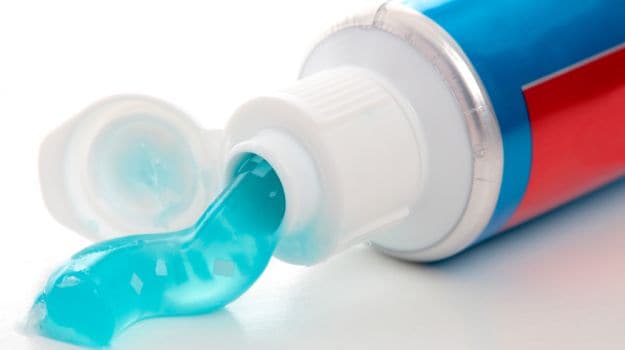
Have you ever looked through the ingredients on the product label of the things you consume daily, for instance, your soap or toothpaste? It’s high time we paid more attention to the elements we’ve often overlooked and their effects on our health.
One such chemical substance is Triclosan, an antimicrobial agent found in various consumer products ranging from soaps and toothpastes to toys and cosmetics. It is used to prevent or reduce bacterial contamination. However, a new research shows that Triclosan disrupts the beneficial bacterial communities in the gut. Although the health implications are not certain, dysfunction of the gut micro-biome has been associated with several diseases like diabetes, heart disease, arthritis and malnutrition.
Animal studies conducted have shown that triclosan alters hormone regulation. The research, published in the journal PLOS ONE, was based on findings made with zebrafish, which researchers believe are an important animal model to help determine possible human biological and health impacts of this antimicrobial compound. In another study, researchers found that triclosan exposure caused rapid changes in both the diversity and composition of the microbiome in the laboratory animals. The U.S. Food and Drug Administration asserts that data showing effects in animals doesn’t necessarily predict reactions in the human metabolism. Having said that, they also reveal some studies which show that triclosan may contribute to making bacteria resistant to antibiotics.
“Clearly there may be situations where antibacterial agents are needed. However, scientists now have evidence that intestinal bacteria may have metabolic, cardiovascular, autoimmune and neurological impacts, and concerns about overuse of these agents are valid,” says Christopher Gaulke, lead author on the study and a postdoctoral microbiology researcher at Oregon State University in the US.
Triclosan was first used as a hospital scrub in the 1970s and now is one of the most common antimicrobial agents in the world, found in shampoos, deodorants, toothpastes, mouth washes, kitchen utensils, cutting boards, toys, bedding, socks and trash bags. It continues to be used in medical settings, and can be easily absorbed through the skin. There have been reports of dermatitis or skin irritation due to direct exposure to triclosan.
In the new study, researchers found that triclosan exposure caused rapid changes in both the diversity and composition of the microbiome in the laboratory animals. Currently, triclosan is being scrutinized deeply and studies are being conducted to get enough evidence to prove that it is hazardous to the human body. Keeping that in mind, maybe you should consider going the natural way.
[“source-ndtv”]
